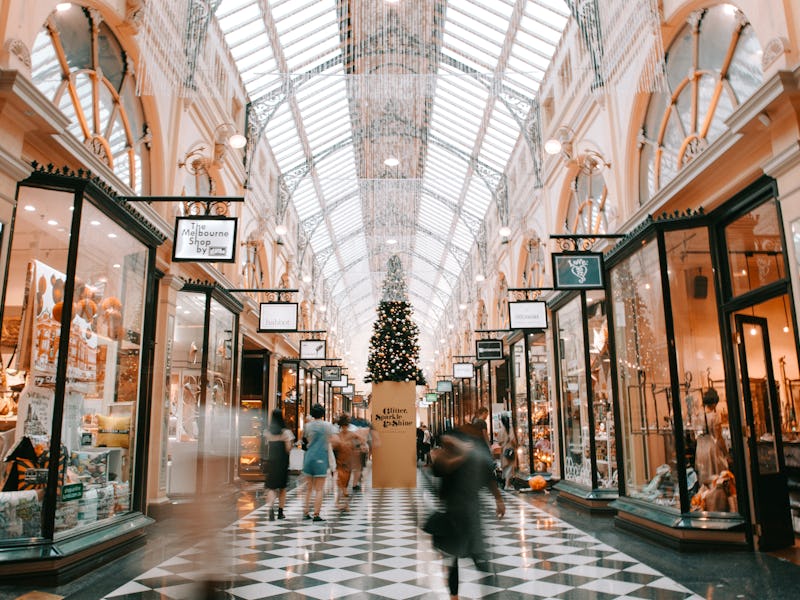Could Climate Change Benefit Companies Like Amazon?
Climate change definitely has an effect on sales.

Companies that deliver groceries, clothing and other things people want already benefit from the fact Americans like convenience and don’t always feel like leaving the house, but will climate change might make us even more likely to stay in and order the things we want online?
According to a new report from the Federal Reserve, extreme weather caused by climate change could have a significant impact on in-person retail sales in the not-too-distant future, but it’s unclear if online retailers will benefit.
When the weather is bad, author Brigitte Roth Tran found, people are less likely to go shopping. This is both harmful to the stores seeing a decline in sales and to the employees who might see fewer shifts available due to a lack of foot traffic. However, this doesn’t necessarily mean people will simply choose to order everything they need online.
“I find no evidence of sales being shifted to the online space when weather is bad for shopping in stores,” she writes. “Instead, the most favorable weather for shopping in stores also increases online sales, while unfavorable weather for stores does not appear to affect online sales on net.”
The report explains that people tend to shop more when the weather is good and less when the weather is bad, whether that’s online shopping or going to an actual retail store. That said, it’s possible that longterm extreme weather, such as a lengthy heatwave, could drive people to shop more online so they can stay out of the heat.
Geoffrey Heal, a professor of economics and finance at Columbia University who focuses on climate change, tells Inverse that in the not-too-distant future a lot of people won’t have much expendable income at all due to the effects of climate change.
"They’re going to be worried about the costs of extreme weather. — Columbia economics professor Geoffrey Heal
“The biggest effect of climate change on shopping is going to be making people shop somewhat less — to spend somewhat less — because they’re going to be meeting climate-related expenses,” Heal says. “They’re going to be worried about the costs of extreme weather and things of that sort.”
Heal says people will also have less money available because extreme weather will affect their ability to work. The Fed report notes that retail stores will be less busy, but Heal says you also have to think about people who work outside, in industries like agriculture and construction who won’t be able to work during extreme heat, flooding and other climate-related weather events.
The Fed report indicates that these extreme weather events, especially if they become much more frequent, can have lasting effects on a company’s profitability. The more slow days a company has and the more times the property is damaged, the worse off the company is going to be. Based on that, it would seem these extreme weather events should be thought of as a general threat to a company’s existence.
"…weather can induce large and largely permanent swings in retail sales for stores. — Fed economist Brigitte Roth Tran
“The findings I present here have significant implications,” Roth Tran writes in her report. “I show that weather can induce large and largely permanent swings in retail sales for stores.”
This is especially true when it comes to outdoor retailers. The report explains that when there is inclement weather, people are less likely to choose to go to an outdoor venue.
“If you’ve got a business that is marginal—it’s close to bankruptcy—and it has a kind of shock from extreme climate events, that could push it into bankruptcy,” Heal says.